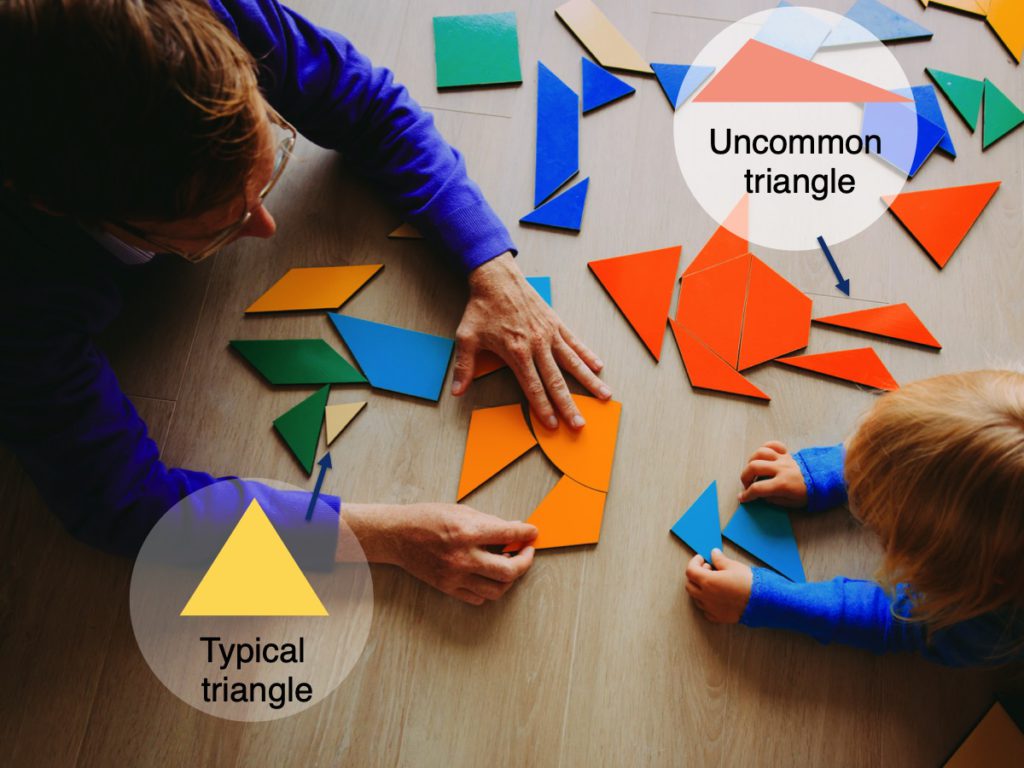
Research shows that guided play benefits children’s math learning. Shape knowledge is one part of math learning important for school readiness. Shape awareness is a foundational skill related to spatial thinking and geometry.
Consider a scene in which a preschool child plays with typical and less common shapes with his parent. Children often see a lot of typical, or common shapes, like the yellow triangle. These regular shapes are everywhere from books to shape sorters. But children are often not exposed to as many uncommon shapes, like the orange triangle. Because children don’t see these uncommon shapes much, they often don’t recognize them as triangles, for example. Researchers wondered how adults could best support children’s shape knowledge. Even if a child can say, “That’s a triangle!” she might not know what makes it a triangle. Triangles are a closed shape with three sides and three “corners.” Would children learn better during guided play compared to direct instruction? Let’s take a look at that study.
-
- Free play
- is spontaneous, unstructured play that is child-directed
- Guided play
- is like free play, in that it's focused on what the child is interested in. But unlike free play, an adult facilitates a playful learning experience